Afghanistan: Futile war ends in devastation
Afghanistan shows that while it was dangerous to be America’s enemy, it’s almost fatal to be America’s ally.
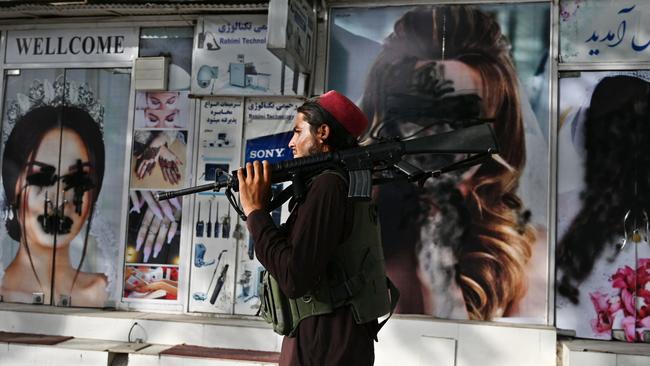
America and its allies have been hurt by the unfolding tragedy in Afghanistan. No one has been hurt as much as the 39 million people of Afghanistan, especially women and girls, who will be forced to live under an Islamist terrorist theocracy with a history of extravagant and often depraved violence.
But America is hurt by this debacle, and by the whole 20-year war on terror.
On balance, and it’s a bitter conclusion, the terrorists have got slightly the better of the war on terror.
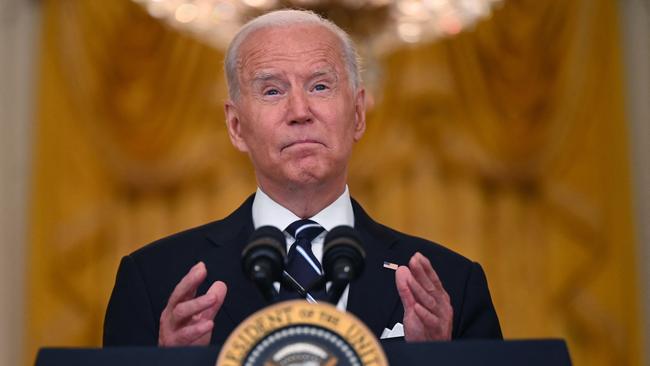
It is tempting to blame Biden personally. If Donald Trump had overseen such a colossal fiasco, the world would reverberate with the judgment that this showed Trump’s unfitness for office, incompetence, capriciousness, irresponsibility, and innate foolishness.
Trump did contribute to the disaster through the absurdly one-sided deal he did with the Taliban, without even consulting America’s ally, the Afghan government.
But Biden is greatly diminished. His administration now looks as incompetent as Trump’s. The smooth-talking but previously anonymous Secretary of State Antony Blinken oversaw complete policy incoherence. The almost entirely anonymous Defence Secretary Lloyd Austin was no better. The Biden machine now looks like a bunch of talking heads with little real traction.
Although Biden is plainly in some cognitive decline, this was his decision, against the wishes of his generals. Whether ultimately the case for withdrawal was stronger than the case for maintaining a small, stabilising garrison, Biden could not have handled the mechanics, and optics, of the withdrawal more catastrophically. He nominated the 20th anniversary of the 9/11 terrorist attacks in New York and Washington as the effective deadline for US withdrawal. This was a huge symbolic gift to the terrorists.
He did not consult allies, either NATO allies, or non-NATO allies such as Australia, or the Afghan government, on the details of the withdrawal, thus achieving maximum disruptive chaos.
For reasons that will be forever inexplicable, he decided to withdraw in the middle of the fighting season. When winter comes in Afghanistan, it is difficult for insurgents to move around. The Taliban was generally unable to take a single large Afghan city while the Americans were there, even in small numbers.
If the US had withdrawn in winter it would have given the Afghan government space to catch its breath.
The Americans had made the Afghans too dependent on super hi-tech US weaponry. US equipment, with all its bells and whistles, is difficult even for Americans to operate. It is utterly beyond Afghans deprived of American help.
The Americans trained the Afghans to rely on US air power and then withdrew it overnight.
The Americans designed the Afghan military against the grain of Afghan society, against the grain of territorial, tribal, clan-based hierarchies and loyalties. They made it a replica of a national institution when no nation existed to excite institutional loyalties.
The co-operation and backing of significant elements of the Pakistani intelligence services, plus the safe haven provided to the Taliban by Pakistan, were essential to Taliban success. No US administration since George W Bush put significant pressure on Pakistan.
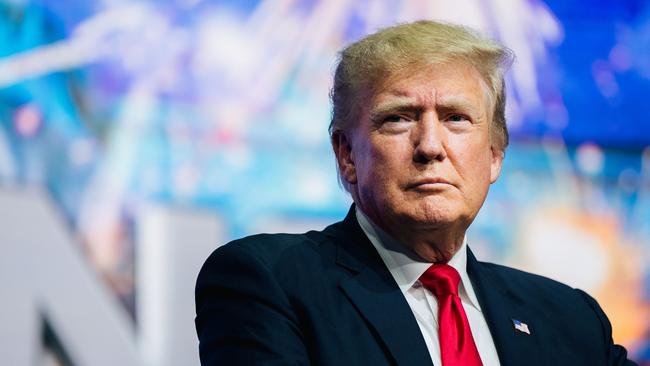
All three post-Bush presidents – Barack Obama, Trump and Biden – have been desperate to get out of Afghanistan. But they feared the ensuing chaos. They wanted to keep Afghanistan temporarily stable and kick the can down the road to their successor.
Biden’s only achievement is that he has concluded the issue of US deployment. It’s now over. He’s done it in the most incompetent, bloody, irresponsible and damaging way possible. But he can say he’s done it.
It’s been clear for a long time that nation-building has not worked. In 2018, I interviewed Andrew Hastie, now the Assistant Defence Minister, for a book I wrote on Christianity. He had been a Special Forces officer in Afghanistan. He judged Western involvement a failure and told me: “It was a result of muddled thinking, a lack of clear purposes. The project in Afghanistan morphed from disrupting al-Qa’ida to rebuilding Afghanistan in the image of ourselves without regard to geography or culture. We never had a relationship of accountability with the Afghan people. A week after I left Afghanistan in 2013, the vast majority of the leaders we were training were killed in a suicide mission.”
There is no doubt the initial military intervention in Afghanistan was justified. I supported that strongly. But it was clear after a few years that we were not succeeding in counterinsurgency and nation building. These impulses came from a generous place in the American policy pscyhe, but they were wildly unrealistic. The Taliban has a measure of support not just because they are ethnically Pashtun, and represent a chance for ethnic dominance, but some millions of Afghans subscribe to much of their Islamist worldview.
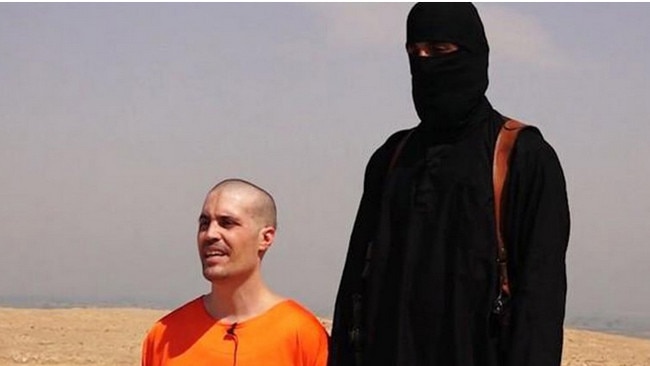
Nonetheless, there was a respectable case for the US deployment morphing into a permanent, modest garrison. By the end it only had around 3000 soldiers there and a few thousand contractors who kept the air force working. If they had stayed, and the expectation had been that they would stay indefinitely, the Afghan government and its army would have been good enough.
A soldier can have a genuinely heroic intention, willing to fight if necessary to the death for his family, community and country. But if you convince him the cause is 100 per cent certainly lost, as Biden convinced the Afghans by the bizarre manner of his withdrawal, then the soldier makes a new calculation. My family will be better off if I am there to protect them after the bad guys take over. The priority then is to get out of uniform and get back home.
That is not necessarily cowardice, nor is it irrational.
The deeper lesson in this instance was that it was dangerous to be America’s enemy, but almost fatal to be America’s ally.
We should not make too much of that, however. Before 9/11, the US had no history of alliance with Afghanistan, no cultural commonality, very few human connections. Yet it stayed for 20 years, spent $US2 trillion and lost 2500 of its own dead, and many thousands more dreadfully injured.
The tragedy of Biden’s incompetence is that America is so much better than Biden, just as I believe it is so much better than Trump.
But it is also right to see the whole Afghanistan fiasco as part of the two-decade US war on terror. The 9/11 terror attacks were unique in American history, the greatest single loss of life in military action on US soil since the Civil War.
We have had now a couple of years in which Islamist terrorists have not conducted mass casualty, high-profile terror attacks in Western nations. It would be the height of complacency and analytical folly to think therefore that the war on terror is won.
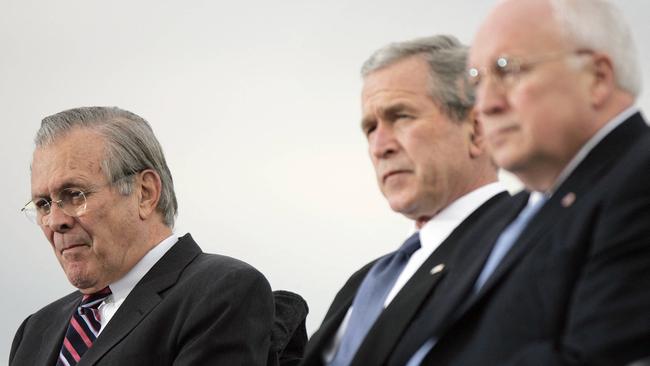
The US and its allies had some real achievements in the war on terror. They degraded al-Qa’ida and finally killed Osama bin Laden. They prevented mass casualty attacks in countries such as the US and Australia. After Islamic State emerged in Iraq and Syria, and for a time succeeded al-Qa’ida as the main Sunni Islamist terror franchise, the US and its allies defeated IS and the Iraqi government was able to regain control of its territory.
Al-Qa’ida and all the other terror groups were unable to establish Islamist caliphates, unable to overthrow national governments in the Arab, African and Asian regions and replace them with Islamist governments.
But the checklist of the costs to America of the War on Terror, and the achievements of the terrorists, is profoundly sobering.
Afghanistan was the only country the terrorists controlled and lost. Now they’ve got it back, and thousands of hardened jihadists, from every corner of the world, have been released from their prisons. The Taliban has not changed its ideology. It shows signs of being more cautious and perhaps more gradual than it was when it was in power in the late 1990s. But it controls more of Afghanistan now than it did then. It hates the US and the West. And it is vastly more sophisticated and capable.
Secondly, al-Qa’ida and its imitators and allies have massively strengthened the extremist Islamist brand. In 2018, the prestigious Centre for Strategic and International Studies conducted a survey that concluded there were then 230,000 Salafi jihadist fighters in the world, more than four times as many as there were when the 9/11 attacks took place.
There are fewer committed jihadists now than in 2018. But that’s because there has been a lull in fighting and Islamic State was routed in Iraq. Jihadist terror recruiting in Western societies has been disturbingly successful. It often combines a simplistic but extreme and paranoid interpretation of Islam with a pornography of macho violence, which always has an appeal to the worst instincts in young men.
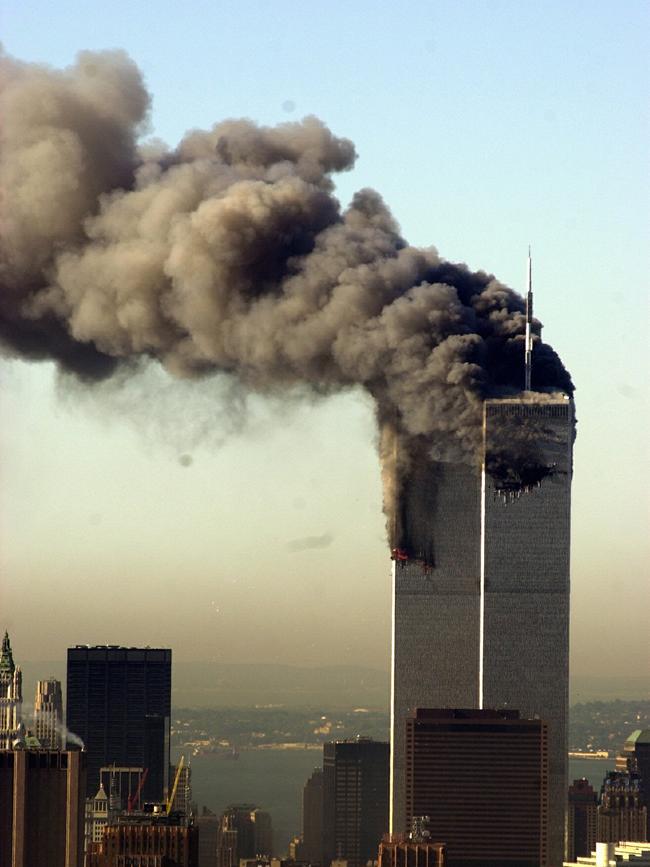
When Islamic State was triumphant in Iraq, this was very powerful. Now that the Taliban is triumphant in Afghanistan, it is logical to expect it will become very powerful again. But what is undeniable is that while al-Qa’ida and its allies did not destroy America or seize power in a raft of Muslim nations, they have massively increased their active support base in dozens of countries.
The war on terror also had direct financial costs for the US. It spent $US2 trillion on Afghanistan and got nothing. It spent a similar sum on Iraq. This is why US politicians took to referring to Afghanistan as “the endless war”. As Paul Wolfowitz, the former US deputy defence secretary, pointed out in a brilliant interview with Tom Switzer on the ABC’s Radio National this week, a deployment of 3000 troops and no military fatalities is not really “a war” for the US at all.
So US political leadership failed utterly. No US president would talk honestly about keeping a modest stabilising deployment, at a modest cost, in Afghanistan, but they stayed for 20 years. So there was deep confusion among the US public and loss of confidence in US leadership. (And incidentally, the idea that if the US had not been distracted by Iraq, and just spent a bit more money on Afghanistan early on, then it would have been OK, is nonsense.)
But there were three other much bigger costs to the US in the war on terror.
The first was US morale itself. The grinding cost of Afghanistan to Moscow, and its final defeat and humiliation at the hands of the Mujahideen, played a big role in the collapse of the Soviet Union. America is not going to collapse, but its morale and self-belief have been hurt.
Secondly, the force structure of the US military was wildly distorted by the Iraq and Afghan deployments. Not only was the US Army exhausted, it was expanded at the expense of the services which will carry all the security burden in relation to China – namely the air force and, above all, the navy.
Not only that, the most expensive hi-tech aeroplanes in the world – F22s and F35s – which are extremely expensive to operate, suffered near exhaustion of air frames after endless deployments on basically low-tech missions in the Middle East.
And finally, the greatest cost to the US of the war on terror is that Washington did not pay anything like enough attention to the rise of China, which is an infinitely greater challenge and a much more dangerous competitor than any collection of terrorists.
Oh, and the terrorists succeeded in dividing US society.
Covid, terrorism and China – the strategic challenges for the US – are immense. The Biden presidency once promised that the US system could get back to coherent work. That promise is shattered for now. We must hope for a characteristic American rebound.
You can hear Greg Sheridan discuss his new book, Christians, The Urgent Case for Jesus in our World, with John Anderson at johnanderson.net.au




“There’s going to be no circumstances in which you see people being lifted off the roof of the embassy of the United States in Afghanistan.”
Joe Biden, July 8